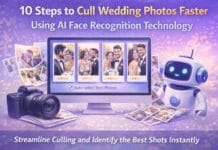Many sectors have been impacted by AI, including those of modern creators. In today’s innovative world, it is an indispensable tool. Structure is provided, prejudice is eliminated, and new ideas are generated. That combination is altering the way artists operate.
In addition, it opens up new avenues for collaboration and creativity. For example, a survey found a meager percentage of people not expressing a perspective, and close to 75% of creative workers believe AI will alter their occupations over the next decade.

Creative in modern industries are enthusiastic and pragmatic about the impact of AI, thanks to their increasing familiarity with and usage of AI tools. The primary advantages of using AI in creative endeavors are highlighted in this article.
Here, you will find out how this powerful tech may work in tandem with humans rather than competing with them.
1. Improving the Process of Idea Generation and Brainstorming
Artificial intelligence has the potential to enhance brainstorming sessions by sifting through massive amounts of data in search of unexpected connections that can inspire new ideas. Tools for creating mood boards and concept art can generate ideas that would have been impossible without artificial intelligence.
For example, Foxy AI, an AI-powered personal content creator, can offer a fresh perspective that can spark new ideas by mining user data and preferences for inspiration. The quality and originality of ideas generated by several creators who utilized brainstorming tools powered by artificial intelligence showed a significant improvement.
2. Making Routine Processes Easier
Artificial intelligence has revolutionized our approach to creative projects by handling repetitive duties that sap our creativity. It accomplishes this in various contexts, including video editing, frequent video modifications, basic music creation, picture editing, and color correction. Think about this: Applications powered by artificial intelligence can automatically adjust exposure and color balance.
With remarkable accuracy, they can even remove unwanted elements from images. Artificial intelligence algorithms can now generate drum sequences, suggest chord changes, and even build entire background music. It frees the artists to focus on the song and its overall arrangement.
The creative industries are poised to be significantly affected by the current trend towards AI-assisted workflow. Creatives may free up more mental bandwidth for high-value activities like ideation, strategy, and creative problem-solving when they use AI to handle mundane but necessary duties. More original and consequential creative productions are typically the result of this reallocation of resources.
3. Developing Tailored Content
AI has revolutionized the way content is created. It makes customization possible in ways never seen before, increasing engagement and productivity across a wide range of creative industries. This technology tweaks content to suit specific likes, activities, and settings using masses of user data and complicated calculations.

Using AI to tailor ads to specific users based on age or region is just the beginning. To create highly personalized content, machine learning can analyze a user’s online behavior, purchase history, social media conversations, and real-time situational data.
For instance, AI can personalize promotional emails by taking into account each user’s past conversations and interests to alter the content, tone, and timing of the emails. Significant improvements in sales and customer support have been achieved by this personalized touch.
The music industry has been greatly impacted by AI-powered customization. Music streaming services utilize AI to create personalized playlists that adapt to users’ tastes. Advanced systems can now generate unique musical compositions in response to user preferences. For example, AI composers can compose original scores for video games and other media.
4. Overcoming Obstacles to Creativity
Artificial intelligence (AI) is a potent tool for overcoming creative roadblocks by offering fresh approaches and perspectives. Artificial intelligence (AI) can generate novel combinations of ideas that human innovators might overlook by sifting through massive datasets of past failures and successes.
Consider AI-powered instruments, for instance. They can reorganize existing concepts in novel ways, suggesting new color palettes, story structures, or musical compositions. Connecting seemingly unrelated elements can often lead to unexpected discoveries.
Plus, AI may simulate different creative processes, allowing artists to explore more than one avenue at once. Rapidly breaking a stalemate, this brainstorming step offers numerous springboards for ongoing development.
5. Grasping and Collaborating
The way humans collaborate creatively has been transformed by AI. It facilitated easy access for individuals with diverse needs by removing physical barriers. New possibilities for collaboration and individual expression emerged as a result of this technological development, which also made the creative process more accessible and efficient.
Artificial intelligence (AI) powered collaborative platforms have revolutionized remote teams’ operations. With features like real-time translation, these apps make working together easy for creators who speak different languages. To help overcome cultural differences and minimize confusion, high-tech natural language processing allows for a more detailed communication style.
AI is having a profound impact on the lives of individuals with disabilities. People with problems moving around can utilize speech recognition software to express themselves verbally. AI-powered tools make visual tasks accessible to people with visual impairments by providing an auditory representation of the scene. Predictive typing and auto-fill features make it easy for those with motor or cognitive disabilities to express themselves.
In the end!

The use of AI in artistic endeavors offers numerous advantages. It makes work more accessible, encourages teamwork, and boosts imagination. As a result, imaginative people can zero down on the most critical and groundbreaking aspects of their work.
Because of that, their job has improved and is becoming more interesting. Indeed, AI in creative fields may still have a ways to go before reaching its full potential. However, its future appears bright with increased innovation, efficiency, and productivity.





